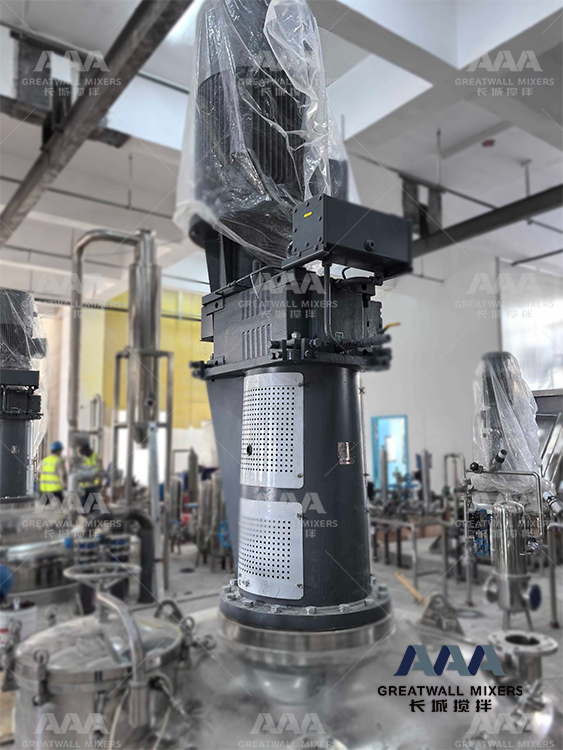In December 2024, after-sales engineers from Greatwall Mixers traveled to Anhui to provide on-site installation and commissioning services for a amino acid project. The core equipment of the project is a fermentation tanks used for the production of amino acid.

About Amino Acids
Amino acids are the building blocks of proteins and play a crucial role in vital metabolic processes in living organisms. Their molecular structure contains both an amino group (-NH₂) and a carboxyl group (-COOH), giving them diverse biological and chemical functions. Amino acids are categorized into essential amino acids (e.g., lysine, methionine) and non-essential amino acids (e.g., glutamic acid, alanine) based on the human body¡¯s ability to synthesize them.
Applications of Amino Acids
1.Food Industry: Widely used as flavor enhancers (e.g., monosodium glutamate) and nutritional fortifiers to improve taste and health benefits.
2.Pharmaceuticals: Utilized in therapeutic drugs and nutritional supplements to promote wound healing, enhance immunity, and treat liver diseases.
3.Feed Additives: Amino acids like lysine and methionine are incorporated into animal feed to promote livestock and aquaculture growth, improving feed efficiency.
4.Cosmetics: Certain amino acids and derivatives are valued for their moisturizing and antioxidant properties, making them key components in skincare products.
5.Industrial Applications: Serve as important precursors for biobased materials, contributing to the production of bioplastics and pharmaceutical intermediates.
Industry Challenges and Solutions for Amino Acid Fermentation
The amino acid fermentation process, a high-value biomanufacturing technology, is widely applied in food, pharmaceutical, and feed industries. However, traditional fermentation tanks face several bottlenecks. Limited oxygen transfer efficiency, particularly in high-density cell cultures, fails to meet the demand for rapid growth. Uneven mixing causes imbalances in the distribution of oxygen and nutrients, reducing fermentation rates. Frequent foam overflow increases maintenance costs and risks lowering product quality. Additionally, challenges like uneven temperature control, contamination risks, and cleaning difficulties further escalate production complexity and costs.
To address these issues, Greatwall Mixers designed a multi-layered solution using parabolic-blade disc turbines, four-wide blade removable impellers, and foam-breaking impellers. The bottom turbines enhance oxygen transfer and gas-liquid dispersion, meeting the needs of high-density cultures. Middle-layer impellers ensure uniform mixing of oxygen and nutrients while offering easy cleaning and maintenance. Top-layer foam-breaking impellers effectively control foam generation, reducing the use of chemical defoamers and enhancing product purity. This precision-engineered setup significantly improves efficiency and quality in amino acid fermentation, solving key industry pain points.
The successful completion of this amino acid project demonstrates Greatwall Mixers¡¯ technical expertise and service capabilities in high-end biomanufacturing. Moving forward, the company remains committed to innovation, offering more efficient and environmentally friendly solutions to drive sustainable growth in the industry.